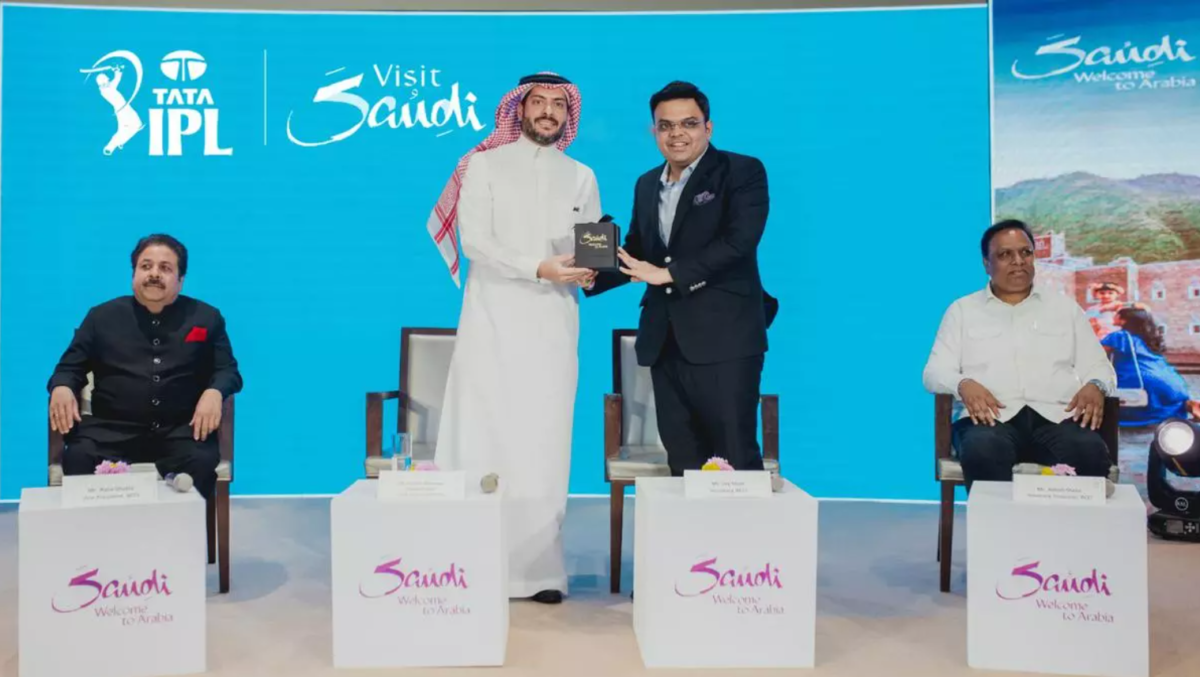Saudi Arabia has expressed interest in buying a multibillion-dollar stake in the Indian Premier League, the most lucrative international cricket competition, following a series of investments that have rocked professional sports including football and golf.
Saudi’s $30 Billion Interest in IPL Stake
Aides to Crown Prince Mohammed bin Salman have advised Indian government officials to turn the IPL into a maximum $30 billion holding company, according to people familiar with the matter. The meeting took place when the head of state visited India last September, said the people, who asked not to be named because the news is not public.
Vision for the IPL and Challenges Ahead
Under the plan discussed at the time, they proposed to invest $5 billion in the league to help it expand into other countries, like the English Premier League and the European Champions League. While the Saudi government is open to negotiations, the Indian government and the BCCI, India’s powerful but opaque cricket regulator, are likely to respond to the offer after next year’s federal elections, the sources said. The BCCI is headed by Jay Shah, the son of India’s Home Minister Amit Shah and a close associate of Prime Minister Narendra Modi. If a deal is reached, Saudi Arabia’s powerful sovereign wealth fund could be the vehicle used to secure a deal with the BCCI, which has previously backed most of the kingdom’s sports investments. A final decision has not yet been made.

Representatives of the BCCI and the Saudi government’s Center for International Communication did not respond to requests for comment. The National Social Assistance Fund also declined to comment. Since its inception in 2008, the IPL has combined the American way of marketing, Bollywood glamor and the energy of the Indian population together. The IPL’s main strategic move was to abandon the traditional cricket format in favor of three- to four-hour matches that encouraged big, risky swings and “sixes,” the cricketing equivalent of home runs. The competition has many sponsors, including Aramco and the Saudi Tourism Authority. Despite the eight-week season each spring, bidders last year paid $6.2 billion for the rights to broadcast IPL games through 2027. That’s higher than the EPL at $15.1 million per game and slightly higher than the $17 million the network pays per game. It is a National Football League game.
Saudi’s other sports ventures
Sources familiar with the matter said Saudi Arabia’s investment in the IPL or changes to the format of the competition would lead to a reworking of media rights deals.
Saudi Arabia has invested billions of dollars in sports in recent years, and the president of the country’s sports governing body has said he wants to turn the kingdom into a global cricket power. “You can’t compete with money, especially the money that Saudi Arabia is throwing at certain people,” Ben Stokes, England’s cricket captain and one of the world’s best players, said in an interview. Meanwhile, other attempts are being made abroad to copy the IPL format. Major League Baseball is funded in part by Microsoft CEO Satya Nadella and Adobe Corporation’s CEO Shantanu Naraen ended their first season in July. This competition has not diminished the commercial dominance of the IPL, as has competition from South Africa, the United Arab Emirates and other countries.
For Saudi Arabia, investment in cricket involves significant spending on sports, particularly golf and football. PIF supported the LIV Golf Tour, which agreed to a surprise merger with the PGA Tour this year.
Saudi Arabia also led the way in purchasing English Premier League club Newcastle United and is now set to host the 2034 World Cup. To become the most popular sport in the world, the country has invested millions in players such as Brazil’s Neymar, France’s Karim Benzema and Portuguese superstar Cristiano Ronaldo.
Sportswashing Concerns
The spending has led to accusations that the Saudi government is “sportswashing” its reputation and human rights record, but the kingdom’s crown prince insists the deal is primarily meant to boost the Saudi economy.



